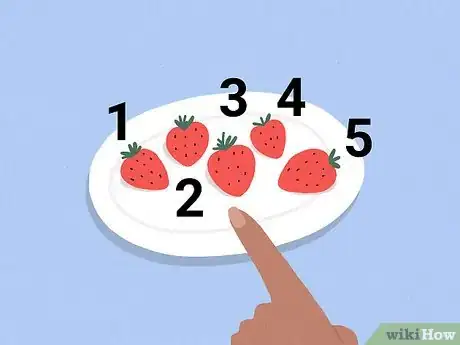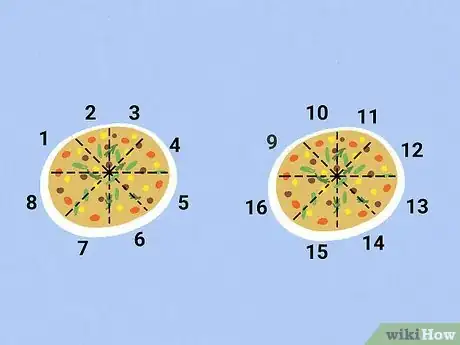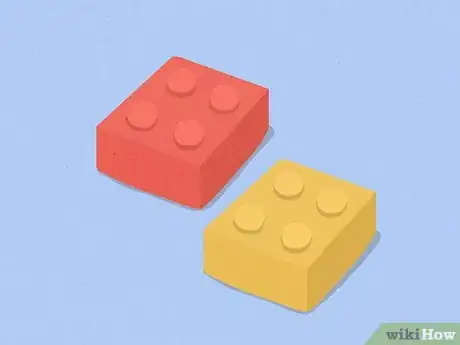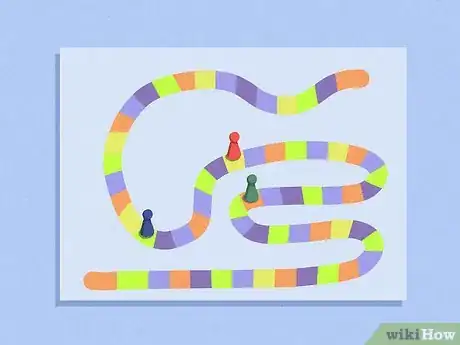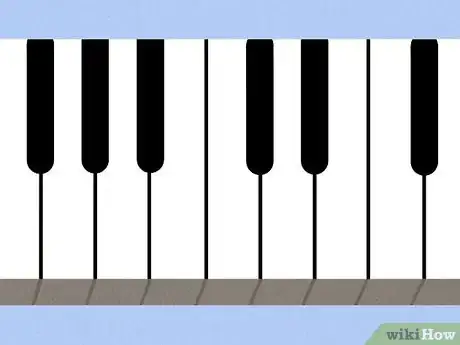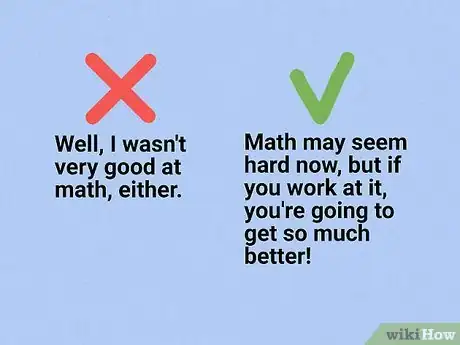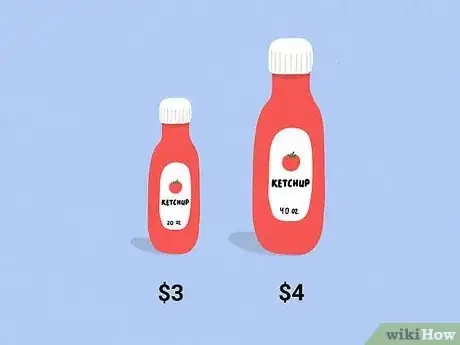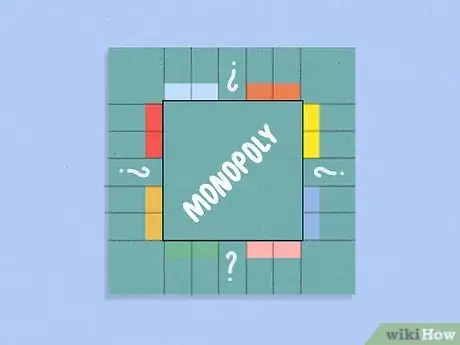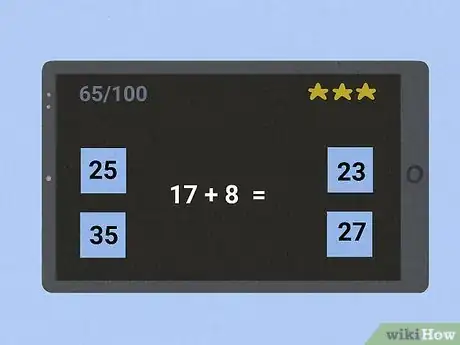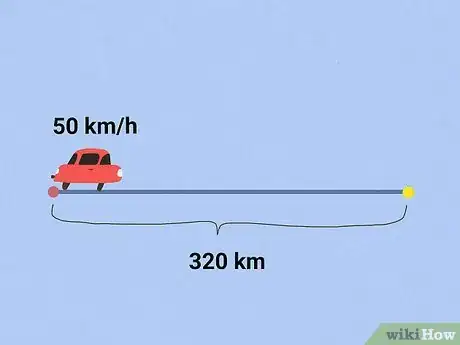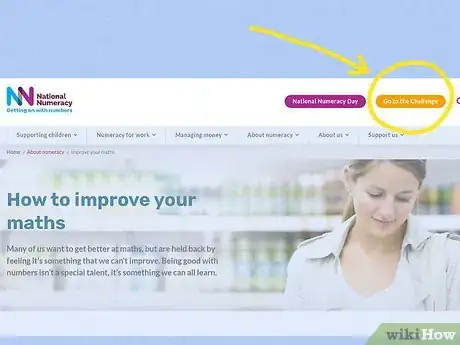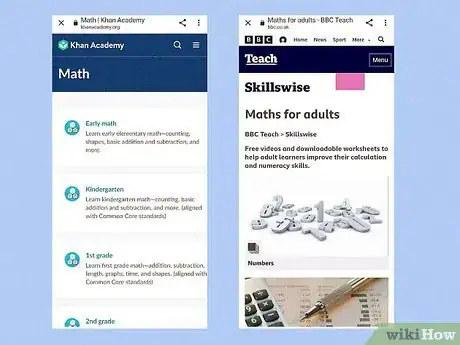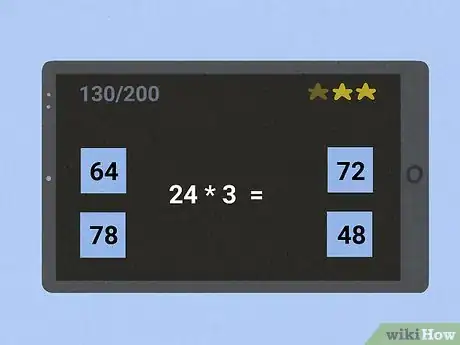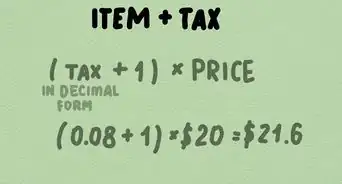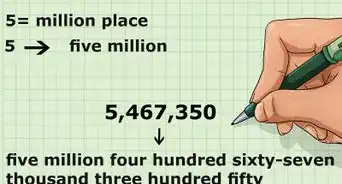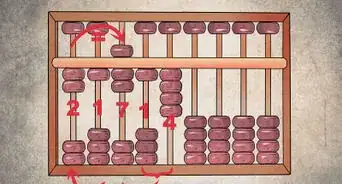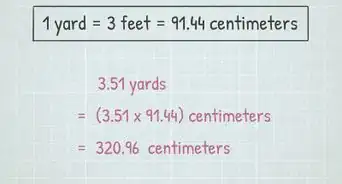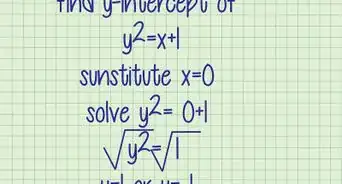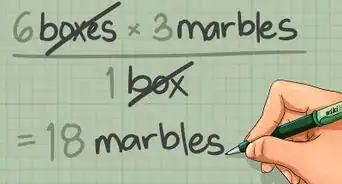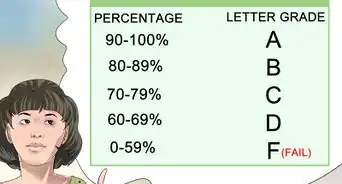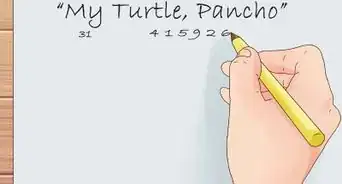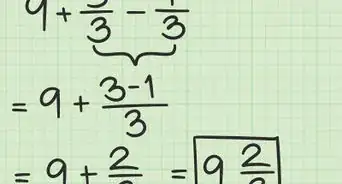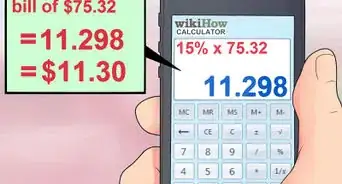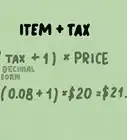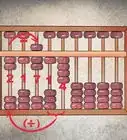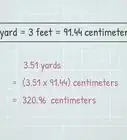This article was co-authored by Daron Cam. Daron Cam is an Academic Tutor and the Founder of Bay Area Tutors, Inc., a San Francisco Bay Area-based tutoring service that provides tutoring in mathematics, science, and overall academic confidence building. Daron has over eight years of teaching math in classrooms and over nine years of one-on-one tutoring experience. He teaches all levels of math including calculus, pre-algebra, algebra I, geometry, and SAT/ACT math prep. Daron holds a BA from the University of California, Berkeley and a math teaching credential from St. Mary's College.
There are 12 references cited in this article, which can be found at the bottom of the page.
wikiHow marks an article as reader-approved once it receives enough positive feedback. In this case, 84% of readers who voted found the article helpful, earning it our reader-approved status.
This article has been viewed 197,332 times.
If you or your kids are struggling with math, you're likely looking for ways to make it easier. When working on math, each concept builds on the one before, so you need to start with the basics, especially with young kids. For older kids, it can help to incorporate math into household activities, such as playing games. If you're trying to improve your own math skills, you may want to get an assessment first to determine what your skill level is and then build from there.
Steps
Working with Younger Kids
-
1Treat math like reading. Parents often read with their kids to get them reading, but fewer do math every day with their kids. Start with counting and number recognition. For instance, count how many strawberries are on the plate, how many signs are on the road, how many tires are on the car, and so on. Doing so will encourage your child to start understanding numbers.[1]
- As your child starts understanding numbers, help them notice them when you're out and about. For instance, point out signs with numbers on them or help them notice numbers on menus.
- Games like hopscotch also help with number recognition.[2]
- Shapes are also important when it comes to getting your child started on math. Point out shapes in the world, as well as with the toys they play with. For instance, you could say, "Look at that sign! It's a rectangle. And that one is a triangle!"[3]
-
2Talk about math out loud. You likely use math everyday, whether it's to calculate how much gas you can afford or how much meat you'll need for dinner. Instead of doing this math in your head, say it aloud. Your kids may not understand it all at first, but the exposure will help them be better mathematicians.[4]
- For example: This pizza has 8 slices, which will give 4 people 2 slices each. We're having 6 people over tonight, so we should order a second pizza and have leftovers.
Advertisement -
3Get building toys for your kids. Building toys help your kid understand spatial math. Building toys can be ones with pipes and joints, interlocking blocks, or even interlocking logs. They also help your child understand how parts form a whole. It can also help to model the behavior by building with your kid.[5]
- Examples of building toys include K'nex and Legos.
-
4Enjoy family game time with math. Many board games for younger kids are designed to help them learn math. For instance, any game that requires your kid to count spaces helps with math, such as Chutes and Ladders or Candyland. Hi-Ho! Cherry-O is also a good option.[6]
- Not every game will help your child learn math. If you notice your child struggling with the game, try a different one.
-
5Have fun with music. It's been proven that there's a connection between learning and playing music and being better in math. Plus, playing an instrument can be fun. Your kid will need to learn to count, as well as learn to think abstractly.[7]
Helping Older Kids
-
1Encourage a positive attitude. You may be inclined to say things like, "Well, I wasn't very good at math, either." However, it's better to encourage them to step up to the plate, so to speak. You could say, "Math may seem hard now, but if you work at it, you're going to get so much better!"[8]
-
2Connect math to the real world. Some teachers don't do a great job of showing kids how math is useful. Just like with younger kids, you can talk about how you're using math in you're everyday life, then challenge them to solve the problem in your place.[9]
- For instance, if you're at the grocery store, have them figure out which is the better deal on a bottle of ketchup.
-
3Have a family game night. Like younger kids, playing board games with older kids can help develop math skills in a low-stress environment. For older kids, try games like Monopoly, Settlers of Catan, Sheriff of Nottingham, or even Ticket to Ride.[10]
-
4Give them some screen time. Plenty of apps and even video games help develop math skills with older kids. You can try apps like Math Jumps, Mathmeter, Wuzzit Trouble, or King of Math, available on most phones and tablets.[11] Online video games, particularly ones that have currency and require puzzle-solving skills, can help older kids work on skills, too.[12]
- Don't give them too much screen time, however. Playing all day at the computer will interfere with your child's social and academic life.
-
5Work on abstract concepts. Once kids get down the basics, you can start working on concepts instead. That way, kids need to actually put some thought into how to solve it. As they get older, you can increase the difficulty.[13]
- For example, you could ask how long it will take you to get home, if you're traveling at a certain speed and going a certain distance.
- You could also ask questions, such as "How long will it take to add water to this pool?"
Learning Tricks as an Adult
-
1Establish your level. All math builds on other skills, so to make it easier on yourself, you need to figure out where you are now. You can find tests online that will help you establish what level you're at, so you know what you need to work on.[14]
- For instance, you can try the UK's National Numeracy exam.
-
2Level up. Once you know what you need to work on, take advantage of online resources to work on your skills. In fact, many placement tests also have simple courses you can take (for free) to work on your skills and improve over time.[15]
- Part of doing well at math is believing you can get better. Try to approach math with a positive attitude.
- You can try the UK's National Numeracy courses, the BBC's Skill Wise, or a website like Khan Academy.
-
3Work on understanding math. Many adults were taught math by memorization as kids. For instance, maybe you just sat down and memorized the multiplication table for school. However, that doesn't help you understand how math works. When you understand how it works, it makes it easier to apply it to problems that you don't already have a formula for.[16]
- For example, you likely know that 3 times 5 equals 15. However, if you've just memorized that fact, you may not have sat down to think about the why of it. Multiplication, though, is just a more advanced form of adding. This equation just means you have 3 groups of 5 (5 plus 5 plus 5 equals 15) or 5 groups of 3 (3 plus 3 plus 3 plus 3 plus 3 equals 15).[17]
-
4Try math apps. Just like games are a good way for kids to learn math, they can also make it easier for you to learn. You can search for math apps or try something like King of Math to work on your math skills.[18]
- You can also try video or online games that require puzzle-solving skills.
Expert Q&A
-
QuestionHow do I become good at math?
 Daron CamDaron Cam is an Academic Tutor and the Founder of Bay Area Tutors, Inc., a San Francisco Bay Area-based tutoring service that provides tutoring in mathematics, science, and overall academic confidence building. Daron has over eight years of teaching math in classrooms and over nine years of one-on-one tutoring experience. He teaches all levels of math including calculus, pre-algebra, algebra I, geometry, and SAT/ACT math prep. Daron holds a BA from the University of California, Berkeley and a math teaching credential from St. Mary's College.
Daron CamDaron Cam is an Academic Tutor and the Founder of Bay Area Tutors, Inc., a San Francisco Bay Area-based tutoring service that provides tutoring in mathematics, science, and overall academic confidence building. Daron has over eight years of teaching math in classrooms and over nine years of one-on-one tutoring experience. He teaches all levels of math including calculus, pre-algebra, algebra I, geometry, and SAT/ACT math prep. Daron holds a BA from the University of California, Berkeley and a math teaching credential from St. Mary's College.
Academic Tutor If you're still struggling with math, consider hiring a tutor to help you develop a solid math foundation.
If you're still struggling with math, consider hiring a tutor to help you develop a solid math foundation. -
QuestionHow do I make math more fun?
 Daron CamDaron Cam is an Academic Tutor and the Founder of Bay Area Tutors, Inc., a San Francisco Bay Area-based tutoring service that provides tutoring in mathematics, science, and overall academic confidence building. Daron has over eight years of teaching math in classrooms and over nine years of one-on-one tutoring experience. He teaches all levels of math including calculus, pre-algebra, algebra I, geometry, and SAT/ACT math prep. Daron holds a BA from the University of California, Berkeley and a math teaching credential from St. Mary's College.
Daron CamDaron Cam is an Academic Tutor and the Founder of Bay Area Tutors, Inc., a San Francisco Bay Area-based tutoring service that provides tutoring in mathematics, science, and overall academic confidence building. Daron has over eight years of teaching math in classrooms and over nine years of one-on-one tutoring experience. He teaches all levels of math including calculus, pre-algebra, algebra I, geometry, and SAT/ACT math prep. Daron holds a BA from the University of California, Berkeley and a math teaching credential from St. Mary's College.
Academic Tutor Try playing math apps or games, like Math Jumps or Math Works to get you or your child more motivated to practice math.
Try playing math apps or games, like Math Jumps or Math Works to get you or your child more motivated to practice math. -
QuestionHow do you develop basic math skills?
 Community AnswerPerhaps ask a friend who understands math well to explain things to you that you don't understand. You can also use website tutorials to learn basic skills, like the UK's National Numeracy site. Keep practicing. You'll get there.
Community AnswerPerhaps ask a friend who understands math well to explain things to you that you don't understand. You can also use website tutorials to learn basic skills, like the UK's National Numeracy site. Keep practicing. You'll get there.
References
- ↑ http://www.pbs.org/parents/education/math/math-tips-for-parents/instill-a-love-of-math/
- ↑ http://www.teachingyourchild.org.uk/maths.htm
- ↑ http://www.getreadytoread.org/early-learning-childhood-basics/early-math/early-math-matters-a-guide-for-parents-of-preschoolers
- ↑ http://www.getreadytoread.org/early-learning-childhood-basics/early-math/early-math-matters-a-guide-for-parents-of-preschoolers
- ↑ https://www.oxfordowl.co.uk/for-home/maths-owl/maths
- ↑ http://www.pbs.org/parents/education/math/math-tips-for-parents/instill-a-love-of-math/
- ↑ http://www.businessinsider.com/how-to-make-your-child-love-math-2013-5?op=1/#k-children-wide-open-questions-that-involve-estimation-and-math-as-opposed-to-the-specific-questions-they-get-at-school-4
- ↑ https://www.oxfordlearning.com/make-math-more-fun/
- ↑ http://www.intmath.com/blog/how-to-make-math-class-interesting
- ↑ http://www.pbs.org/parents/education/math/math-tips-for-parents/instill-a-love-of-math/
- ↑ Daron Cam. Academic Tutor. Expert Interview. 29 May 2020.
- ↑ https://www.sciencedaily.com/releases/2016/08/160808115442.htm
- ↑ Daron Cam. Academic Tutor. Expert Interview. 29 May 2020.
- ↑ https://www.nationalnumeracy.org.uk/improve-your-maths
- ↑ https://www.nationalnumeracy.org.uk/improve-your-maths
- ↑ Daron Cam. Academic Tutor. Expert Interview. 29 May 2020.
- ↑ http://www.quickanddirtytips.com/education/math/how-to-think-about-division-part-1?page=1
- ↑ http://www.parents.com/kids/education/math-and-science/best-math-apps-for-kids/
